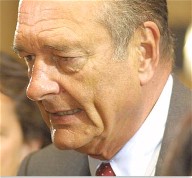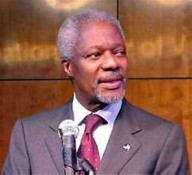And speaking of humor . . . .
Posted by Craig Westover | 3:57 PM |Reader Jack Stassen sends along this bit of "breaking news."
**********
CANADA BUSY SENDING BACK BUSH-DODGERS
The flood of American liberals sneaking across the border into Canada has intensified in the past week, sparking calls for increased patrols to stop the illegal immigration.
The re-election of President Bush is prompting the exodus among left-leaning citizens who fear they'll soon be required to hunt, pray, and agree with Bill O'Reilly.
Canadian border farmers say it's not uncommon to see dozens of sociology professors, animal-rights activists and Unitarians crossing their fields at night.
"I went out to milk the cows the other day, and there was a Hollywood producer huddled in the barn," said Manitoba farmer Red Greenfield, whose acreage borders North Dakota.
The producer was cold, exhausted and hungry.
"He asked me if I could spare a latte and some free-range chicken. When I said I didn't have any, he left. Didn't even get a chance to show him my screenplay, eh?"
In an effort to stop the illegal aliens, Greenfield erected higher fences, but the liberals scaled them. So he tried installing speakers that blare Rush Limbaugh across the fields.
"Not real effective," he said. "The liberals still got through, and Rush annoyed the cows so much they wouldn't give milk."
Officials are particularly concerned about smugglers who meet liberals near the Canadian border, pack them into Volvo station wagons, drive them across the border and leave them to fend for themselves.
"A lot of these people are not prepared for rugged conditions," an Ontario border patrolman said. "I found one carload without a drop of drinking water. They did have a nice little Napa Valley cabernet, though."
When liberals are caught, they're sent back across the border, often wailing loudly that they fear retribution from conservatives. Rumors have been circulating about the Bush administration establishing re-education camps in which liberals will be forced to drink domestic beer and watch NASCAR.
In the days since the election, liberals have turned to sometimes-ingenious ways of crossing the border. Some have taken to posing as senior citizens on bus trips to buy cheap Canadian prescription drugs. After catching a half-dozen young vegans disguised in powdered wigs, Canadian immigration authorities began stopping buses and quizzing the supposed senior-citizen passengers on Perry Como and Rosemary Clooney hits to prove they were alive in the '50s.
"If they can't identify the accordion player on The Lawrence Welk Show, we get suspicious about their age," an official said.
Canadian citizens have complained that the illegal immigrants are creating an organic-broccoli shortage and renting all the good Susan Sarandon movies.
"I feel sorry for American liberals, but the Canadian economy just can't support them," an Ottawa resident said. "How many art-history majors does one country need?"
In an effort to ease tensions between the United States and Canada, Vice President Dick Cheney met with the Canadian ambassador and pledged that the administration would take steps to reassure liberals, a source close to Cheney said.
"We're going to have some Peter, Paul & Mary concerts. And we might put some endangered species on postage stamps. The president is determined to reach out," he said.
If all other efforts fail, Canadian officials say they may be forced give the new liberal immigrants green cards and put them to work busing dishes in upscale Canadian restaurants.













